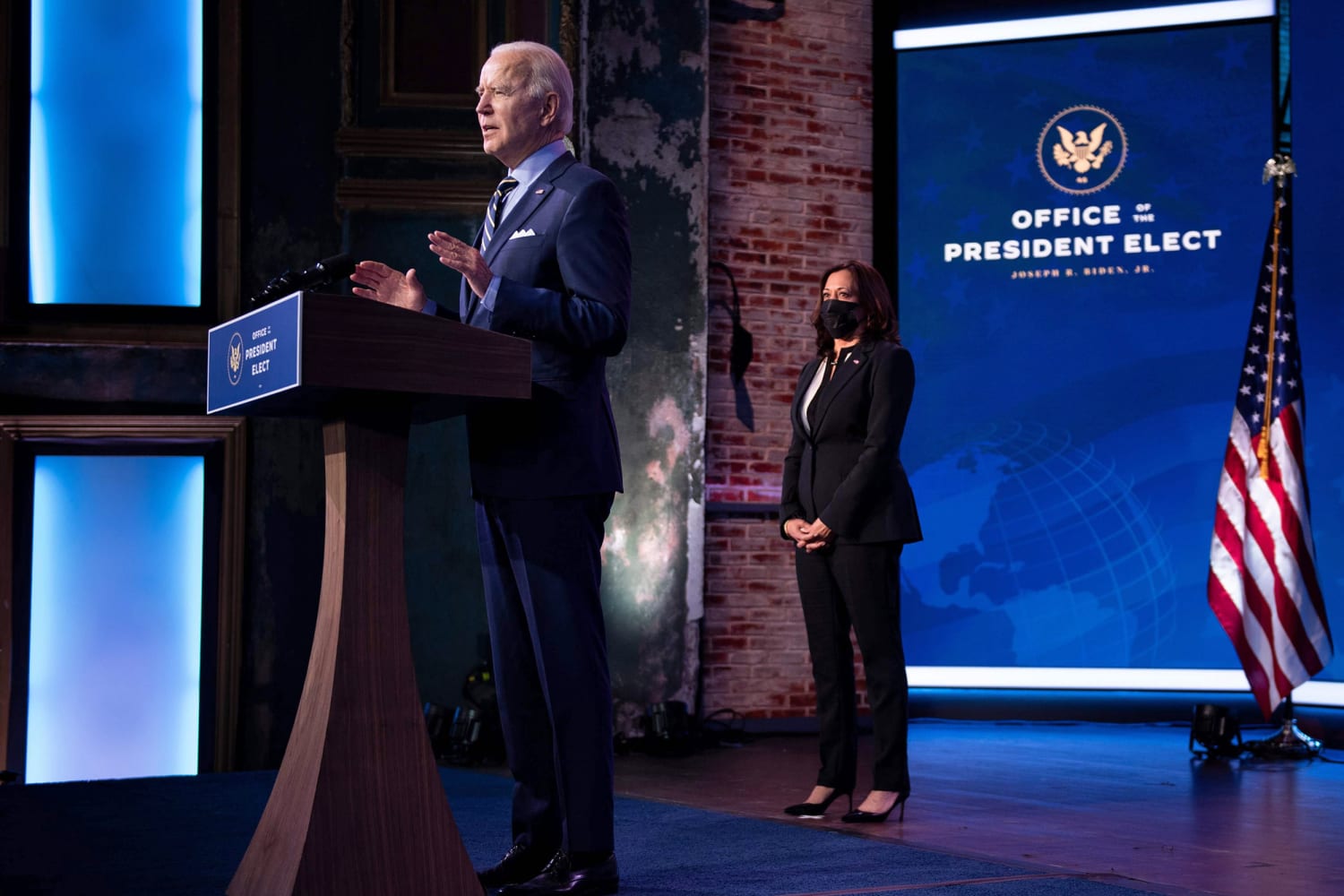Obama White House veterans Julie Chávez Rodriguez and Adrian Saenz are heading back to Pennsylvania Avenue this week with a sense of urgency and a feeling of starting from scratch.
President-elect Joe Biden, who is to take the oath of office Wednesday, made Chávez Rodríguez his director of the Office of Intergovernmental Relations, while Saenz will be deputy director of the Office of Public Engagement.
Chávez Rodríguez, Saenz and other Latinos in the Biden administration will be shouldering some high expectations from a nation on edge after the riot on the U.S. Capitol and President Donald Trump’s second impeachment — during a pandemic and the economic fallout that has robbed people of work and paychecks.
“It’s not going to be easy. I don’t go into any of this with rose-colored glasses,” said Chávez Rodríguez, the granddaughter of the civil rights icon and labor leader César Chavez.
Her boss is taking over from Trump as federal troops have fortified Washington and the Capitol — amid threats that the violence of Jan. 6 could happen again in the nation’s capital or elsewhere across the country.
“We have seen real ugliness and the real rage of racism be exposed over the course of the last four years,” Chávez Rodríguez said. “I never imagined the kind of agency hate would be given from the highest level of office.”
‘Multiple crises’
Biden’s Latino administration officials will be grappling with calls to undo Trump’s policies in many areas — from health care and the economy to immigration and the environment — and the pushback from those ready to oppose the measures in a very divided Congress.
Biden has nominated several Latinos to key Cabinet positions. If he is confirmed, Alejandro Mayorkas will be the first Latino and immigrant to head the Department of Homeland Security. He is expected to overhaul Trump’s hard-line immigration policies and address the fallout of policies like family separations, as well as head the administration’s anti-terrorism strategy.
Xavier Becerra, pending confirmation, will be health and human services secretary as Biden pledges to distribute 100 million Covid-19 vaccine doses in his first 100 days — and as Latinos bear the disproportionate brunt of Covid-19 illnesses and deaths. If he is confirmed as education secretary, Miguel Cardona will be tasked with reopening the country’s schools while devising new federal guidelines about how to educate during the pandemic. Biden nominated Isabel Guzman to head the Small Business Administration as Latino businesses struggle to survive with fewer resources and less funding.
Biden’s staff will have to respond to those expectations in a chaotic government infrastructure that includes empty leadership positions and many government vacancies, said Victoria DeFrancesco Soto, associate dean of the LBJ School of Public Affairs at the University of Texas at Austin.
“A lot is going to have to be undone,” DeFrancesco Soto said. “In just normal times, people expect change quickly, and most people who are not in the weeds of policy analysis don’t understand all of the steps of the slowness of policy.”
Chávez Rodríguez will be Biden’s connection to governors and local officials who are worried about security, the surge of the pandemic, the challenges of mass vaccinations and states’ economic hardships. She said that while the work is “a little overwhelming,” there’s “a real hunger” among governors of both parties and mayors to help solve problems.
“While, yes, we have multiple crises we are facing,” she said, “I think there’s a real moment for collaborative government that I am really excited and energized by.”
Saenz said that, as in any administration, he and other Biden staff members will be starting from the ground up.
Saenz will be engaging with different sectors of the U.S. population — racial and ethnic groups, those representing people with disabilities or special needs and faith-based groups — to help shape Biden’s policies and amplify them.
It will mean starting over, he said.
“This kind of work disappeared during the last four years,” he said. “There were a lot of people who didn’t have access, weren’t heard or weren’t given an opportunity to be heard.”
‘A tall order’
Saenz and Chávez Rodríguez have had their share of campaign and political challenges. Saenz was national director of Barack Obama’s Latino outreach in 2012 as the country was just beginning to crawl out of the Great Recession.
Chávez Rodríguez was a special assistant to the president and deputy director of public engagement when Obama was being called deporter-in-chief by allies for his immigration policy. She also helped roll out the Deferred Action for Childhood Arrivals program, known as DACA, which gave hundreds of thousands of young immigrants opportunities to stay in the country, study and work and which Trump relentlessly but unsuccessfully tried to end.
“People been traumatized the last four years,” she said. “Whether it’s a fear of getting deported or fear of being confronted with vile and hate-filled racism that Trump himself would spout or the trauma of not having the basic needs met, government was failing the last several years. Now more than anything there is an urgency and ability to provide immediate relief to our communities.”
Biden has pledged to enact executive actions during his first 10 days in office. But DeFrancesco Soto said other substantive policy changes can take a long time as they encounter opposition and roadblocks.
“It’s going to be a tall order,” she said. “But you’ve got to start somewhere, and I think with everything, with this pandemic — where we talk about giving everyone a little bit of grace — I think we need to do the same thing with the Biden administration.”
Follow NBC Latino on Facebook, Twitter and Instagram.
Source: | This article originally belongs to Nbcnews.com











